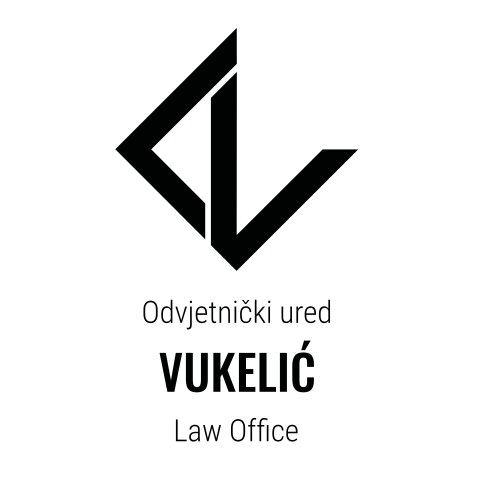Best Foreclosure Lawyers in Croatia
Share your needs with us, get contacted by law firms.
Free. Takes 2 min.
Free Guide to Hiring a Real Estate Lawyer
Or refine your search by selecting a city:
List of the best lawyers in Croatia
About Foreclosure Law in Croatia
Foreclosure in Croatia typically involves the legal process through which a lender seeks to recover the balance of a loan from a borrower who has stopped making payments. This is done by forcing the sale of the asset, generally real estate, used as the collateral for the loan. Foreclosure in Croatia is largely governed by the Croatian Enforcement Act, which outlines the procedures for debt recovery and asset liquidation. The process is judicial, meaning it's overseen by legal authorities, ensuring adherence to legal standards and fair practice.
Why You May Need a Lawyer
There are several instances where seeking legal advice may be beneficial or necessary for those facing foreclosure in Croatia:
- Understanding Proceedings: The legal processes involved in foreclosure can be complex and understanding them is crucial for protecting one's rights.
- Negotiating Settlements: A lawyer can negotiate with lenders on your behalf to explore alternatives to foreclosure, such as loan modification.
- Defending Rights: If any legal missteps occur in the foreclosure process, a lawyer can ensure your rights are defended, potentially halting or delaying the process.
- Complex Financial Situations: During financial distress, a lawyer can provide advice on the best course of action to minimize debt impacts.
Local Laws Overview
The Croatian Enforcement Act is the core legal framework for foreclosures and debt enforcement proceedings in Croatia. Here are the key aspects:
- Judicial Sales: Real estate foreclosures are typically conducted via judicial sales through public auctions.
- Rights of Debtors: Debtors have rights to contest foreclosure, propose debt repayment plans, and appeal judgments.
- Timeframes: There are specific timeframes within which objections and appeals must be lodged.
- Creditors' Power: Creditors can request imminent asset liquidation once a borrower defaults on a payment.
- Notification Process: Debtors must receive adequate notification of any legal proceedings and the foreclosure process allows for contestation.
Frequently Asked Questions
What is foreclosure in Croatia?
Foreclosure is a legal process where a lender attempts to recover the balance of a loan from a borrower, who has defaulted, by selling the collateral used for the loan.
How long does the foreclosure process take?
The duration of a foreclosure process can vary but typically takes several months to complete, depending on the case's complexity and any legal challenges posed by the debtor.
Can I stop a foreclosure once it starts?
Yes, it might be possible to stop a foreclosure by bringing the mortgage current, negotiating with the lender, or successfully contesting the foreclosure in court.
Do I need a lawyer to handle foreclosure?
While not mandatory, having a lawyer can significantly help in navigating the complexities of foreclosure proceedings and ensuring your rights are protected.
What costs are involved in foreclosure proceedings?
Costs can include court fees, legal fees, appraisal fees, and potential additional fees depending on the specific circumstances of the foreclosure process.
What happens to the remaining debt after foreclosure?
If the sale of the asset does not cover the total debt, the lender may pursue a deficiency judgment against the borrower for the remaining balance.
Can a foreclosure be contested?
Yes, borrowers can contest a foreclosure if there are legitimate grounds, such as improper procedure or an incorrect calculation of the debt.
What happens to my credit rating after foreclosure?
A foreclosure negatively affects your credit rating, potentially making it more difficult to obtain credit in the future.
Are there alternatives to foreclosure?
Alternatives may include loan modification, short sales, or negotiated deeds in lieu of foreclosure, often requiring cooperation from the lender.
How is the sale of the property conducted?
The property is typically sold through a public auction managed by the court, with specific legal procedures to ensure transparency and fairness.
Additional Resources
Those seeking more information or assistance can consider the following resources:
- The Croatian Ministry of Justice: Provides information on the legal system and enforcement procedures.
- The Croatian Chamber of Commerce: Offers general advice and contacts for legal professionals.
- Local Non-Governmental Organizations: Some NGOs may offer legal advice or mediation services.
- Financial Ombudsman Service: Can provide impartial advice and assistance in disputes with financial institutions.
Next Steps
If you are facing foreclosure and require legal assistance, consider the following steps:
- Conduct preliminary research to understand your rights and the foreclosure process.
- Contact a lawyer specialized in Croatian foreclosure law for a consultation.
- Gather all relevant financial documents, loan agreements, and communication with the lender to prepare for legal consultations.
- Explore alternative resolution options with your lawyer, such as negotiating with the lender for loan modification.
- Act quickly to preserve your legal options, as time limits for contestation and appeal are typically stringent.
Lawzana helps you find the best lawyers and law firms in Croatia through a curated and pre-screened list of qualified legal professionals. Our platform offers rankings and detailed profiles of attorneys and law firms, allowing you to compare based on practice areas, including Foreclosure, experience, and client feedback.
Each profile includes a description of the firm's areas of practice, client reviews, team members and partners, year of establishment, spoken languages, office locations, contact information, social media presence, and any published articles or resources. Most firms on our platform speak English and are experienced in both local and international legal matters.
Get a quote from top-rated law firms in Croatia — quickly, securely, and without unnecessary hassle.
Disclaimer:
The information provided on this page is for general informational purposes only and does not constitute legal advice. While we strive to ensure the accuracy and relevance of the content, legal information may change over time, and interpretations of the law can vary. You should always consult with a qualified legal professional for advice specific to your situation.
We disclaim all liability for actions taken or not taken based on the content of this page. If you believe any information is incorrect or outdated, please contact us, and we will review and update it where appropriate.
Browse foreclosure law firms by city in Croatia
Refine your search by selecting a city.

















